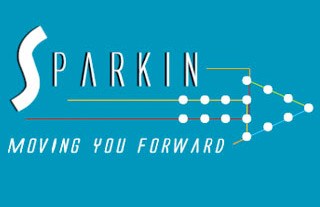‘Unique’ Candidate Raincheck
Some candidates believe when compared to others, like the glowing waves. what they have to offer is quite unique.
What can enhance the chances of this being true is something regularly practiced by the best candidates, who always seek feedback after interviews/They always seek to improve.
Really smart candidates learn from the new found knowledge and adapt.
The smartest candidates of all, (who always end up with serious consideration, if not the job) know that even when they apply the lessons of the past and do everything they can and what they offer is very differentiated, sometimes still, they won’t be hired!
They know that this is not because they did anything wrong but because every opportunity is unique, (just like them) and simply, in some cases there was an even better ‘unique’ fit for the role.
Standout by Getting Your Employer Working For You
Whilst working at your current agency you should consciously pursue experience, education and connections that enhance your distinctiveness as a business problem solver. You should do what you are paid to do (help optimize the agency of which you are part) but also remember that not also leveraging the agency to build your own value, is a wasted opportunity.
Don’t Regret What Was
It’s only once you cease to work for an agency that you appreciate the many things that provides, some obvious and some less so:
A job;A Team; Resources, (financial/creative); Access; Training; Experience; Exposure.
Your working in an agency can be great for the agency’s and its clients business. It should also be a positive step for your career growth.
The Connection between Great Work and Your Success
Does a happy client and grateful agency means you will have an optimized fast tracked career? Perhaps.
If you have are known for being an active team player, a proactive individual that helps to resolve client challenges and optimize opportunities, does this mean you will have a fast-tracked career. Perhaps
Is your reputation for effectiveness and are the career opportunities afforded you directly linked. Perhaps
Why a great contribution Doesn’t Always Mean That You Benefit
For instance. If the agency loves the way you keep one client happy they may well be reluctant to move you to other accounts. Or, put another way, an agency whose priorities and timeline that differ to yours may prioritize training, work, performance and metrics that do not fairly reconcile your contribution, strengths or priorities; Or, you deliver but others claim the credit.
Delivering Consistently Means (In the absence of conscious career management)
If you do deliver consistently and others notice, you should survive (but don’t always).
If you are noticed you might not necessarily be rewarded at all or proportionately or in the way you might want to be.
Delivering tangible metrics yet without a career advocate, throws the recognition and aligned progression you deserve in to question.
Putting Your Employer to Work for You – How?
Accept responsibility for your career progression.
Always have an idea how you want to grow next even if you don’t know what you want your next challenge to be.
Have your own ‘purpose’ and pursue it, even if you don’t believe in the purpose of your employer, or its clients.
Ideally, anticipate what your next career step will be. The clearer you are about this the better able you will be to start harnessing the experience, knowledge and connections you will need to make you a shoe-in for the next role.
Career Self-Assessment
Paid employment consumes at least a third of our working hours and in many cases much more, yet most of us don’t give it the planning it deserves.
Satisfaction at work has an outsize impact on overall life a newsletter for creative strategy/brand planning professionals satisfaction as well as our mental health.
Optimizing workplace happiness is an obvious and perhaps ‘natural’ thing to do, yet too few of us invest the time to assess and plan for success.
Intermittent checks and on-going benchmarking against goals set are vital not only to achieve objectives but to bring clarity, help feel in control and provide a way to show progress in your career… and life.
Please find below a series of links addressing your career success in 2016 and beyond. While the quality of questions you ask yourself is key, so is asking the questions in a context that gives you the time and space to answer such questions honestly. This is the focus of my most recent articlepublished just last week
All the best,
Stuart
Articles and commentary that might be of interest…
- The 8 Self-Assessments You Need To Improve at Work This Year
- Schedule Your Career Health and Wellness Checkup
- 10 Tips For Making Self-Evaluations Meaningful
- Online Career Assessment Tools Review Rankings
- Top 5 Career Assessments To Direct Your Career Change
- Reflect Self-Assessment And development Tool
- What’s Next –Life Values Assessment Test
- Selecting Assessment Tools –Online Assessment Tools
- Entrepreneur Self-Assessment: 9 Professional Tools and Tests
- Career Assessment












